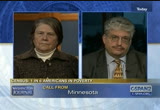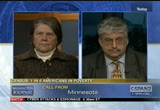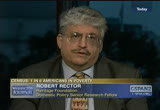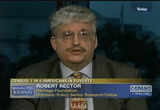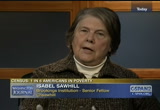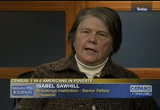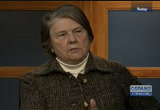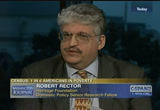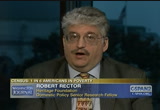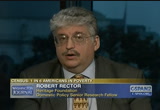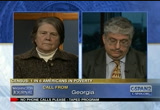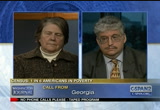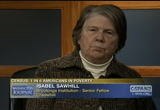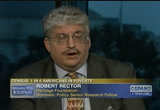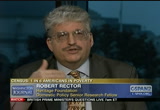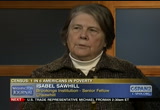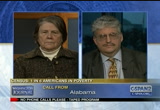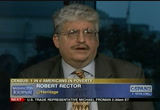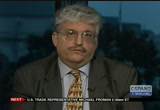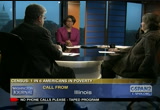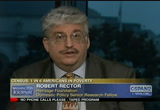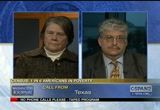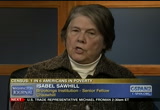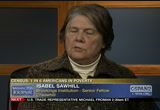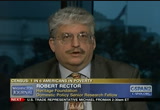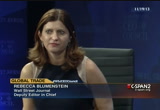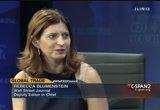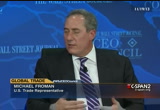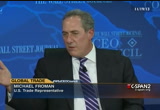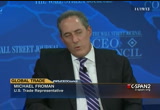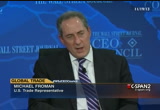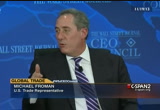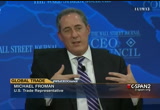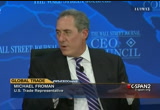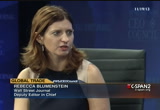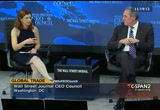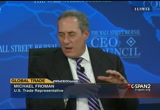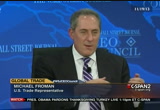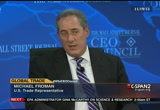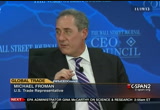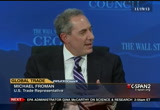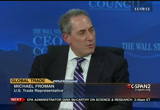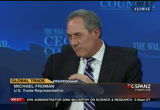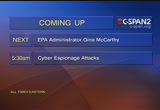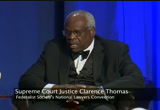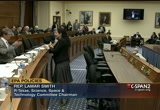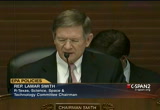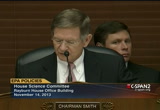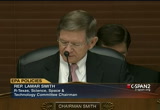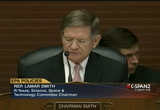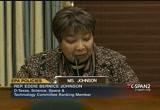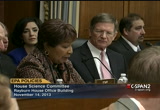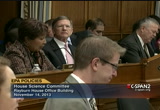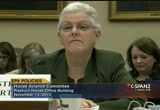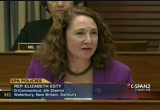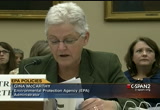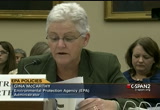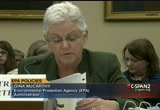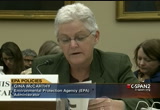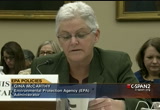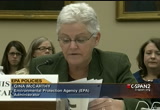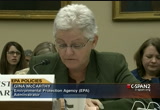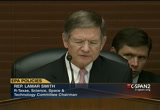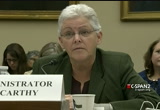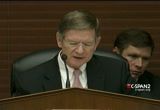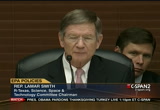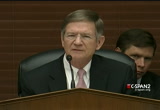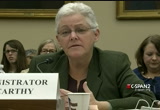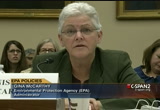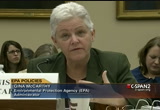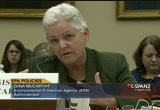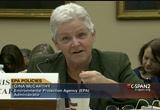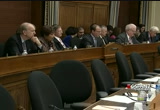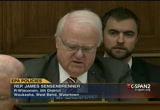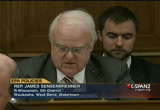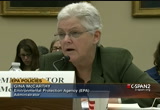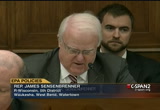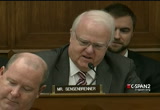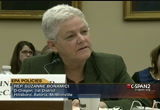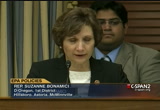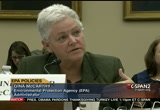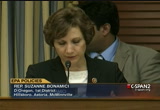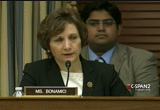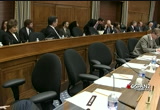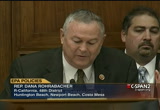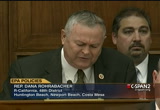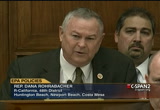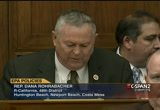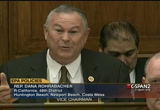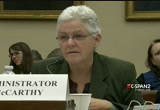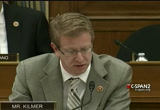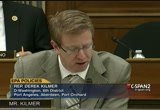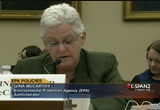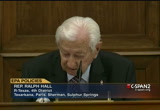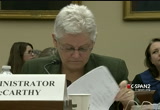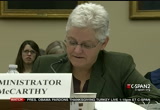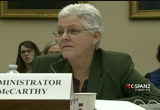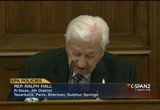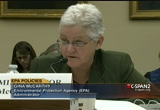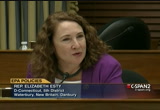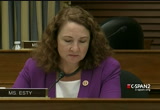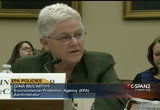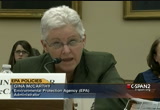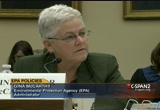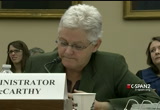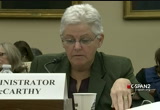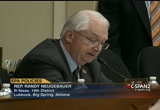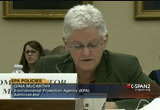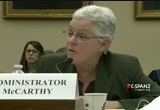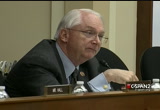tv Key Capitol Hill Hearings CSPAN November 27, 2013 2:00am-4:01am EST
2:00 am
call. i think it is the wrong thing to to cut downturn economy back as much as they are talking about cutting back on the food stamp program. shouldlieve that people make an attempt to go to work before they get a handout of any kind, but it is affecting a lot of other people, too, that the working poor and the people that cannot find enough work -- a lot of these jobs are part-time and they will not give them full time. if there are any members of the clergy out there listening, you take food out of the mouths of kids, and you are going down the wrong road. if you want to support people that do that, and call yourself i do not see that cutting back at a time like this
2:01 am
on a food stamp program is the right thing to do at all. bill -- you know, unless they fix some of the things like that -- i do not know exactly what is going to happen, but i have heard the price of a gallon of milk could double or triple, and this is the wrong time for stuff like this to be going on. reality think that the about the welfare system and welfare spending is that anytime a program is ostensibly cut, we have a huge amount of controversy about it, but when those programs are enlarged, nobody actually knows about it, and as a result of that, we have expanded, after adjusting for inflation, assistance for the poor, 20 fold since the beginning of the war on poverty.
2:02 am
when we started the war on poverty, if you took all the anti-poverty programs and added them together, $.50 was spent for every dollar that would be needed to eliminate poverty, and today we are spending close to $5.50 for every dollar that is needed to eliminate poverty. the system is very large. when we talk about the cuts in food stands, this is half of 1% of a system that is growing by close to 33% over the last four or five years, and, again, even those cuts, i think it might be reasonable to postpone those in exchange for fundamental reforms in the food stamp program requiring that able-bodied adults work or at least look for work in the future as a condition for getting aid. i have been promoting that change for 25 years and i always run into a left-wing roadblock in congress. maybe we can finally get it
2:03 am
through today. guest: i very much agreed with the last caller that this is a very bad time to be cutting back on what is already a fairly meager safety net in this country. ofert gives you a lot statistics that makes it sound impressive and makes it sound like we are a lot more generous than we are, and we cannot have a debate here on television about whose numbers are right, and i do not want to be disrespectful of his numbers. he is a good analyst, but he is a different point of view. i believe and work requirements. i believe we can do a better job of delivering help to the poor. i think it is very important to understand that a lot of the growth he is understanding -- talking about is because of the growth in health-care costs that has affected all of us. that is one of the biggest anti-
2:04 am
poverty programs we have, health care for the poor, especially poor children. we have two programs that loom large in the numbers here. one is dedicated, which goes to low income elderly, in nursing homes, and mothers and their .hildren that are poor another program for children that is for low income children. i do not think anyone in the country wants to deny health care to the poor. you have to be careful when you talk about this data about exactly what you are talking about and what is going on here. i think that we have a much stingier safety net in the united states than any other advanced country that you could look at, and i think we are an affluent society, and although we could do a better job and you do like self-sufficiency, and i am in favor of moving people toward self-sufficiency, there
2:05 am
are a lot of people who because of the job market, because they did not get a good education, or because they have various disabilities, need some help. i would disagree strongly that we have a smaller, stingier safety net than european countries, with all due respect, and i think the point about medical care is right, but if -- take all of the medicare medical care out, the fact of the matter is we are spending twice as much as would be needed person'severy single income above the poverty level. it is therefore a misleading impression about actual living conditions. robert,s you know well, one of the reasons there is money going to people that do not appear to be poor is because if we cut off all assistance to moment somebody reaches the
2:06 am
poverty line, there would be no incentive for someone to get out of poverty, take a job, and see their earnings go up. there are various constraints on how we could do this that i think you would support as much as i would. it is important to design programs in a way that they do not just cut you off the moment you achieve the poverty line. there is no way around that problem. 100%, at the fact of the matter is you are still raising enough money to raise everyone to essentially twice the poverty line, and we are still pretending we have 46 million people that are homeless and do not have food to eat. if that was true, it would be the worst indictment of this system, we spent close to $1 trillion a year but we have tens of millions of people that do not have enough food to eat. there is no way the system can
2:07 am
be that any efficient. i find myself in the ironic position of defending the liberal welfare state, but i am saying even the government could not be that ineffective. we have a large system that rivals anywhere in the world. guest: we will have to disagree about that. -- is the problem is not the money is spent in a way that does not encourage people to help themselves. host: we are talking with robert rector and isabel sawhill. a couple of your tweets -- 83% of food stamp recipients work full-time from don ritchie. medicaid,with snap, section eight, school lunch, heating assistance, how much would one need to learn for the same benefit? a response for either of those.
2:08 am
guest: the average family is getting probably about $20,000 25,000 -- we have thousand dollars a year. people working full-time is not accurate, but if you are the working-time, requirement does not apply to you. in the long-term individuals would be benefited by a nudge it would move them more into the labor force and that would be best for the taxpayers as well. guest: we have not talked very much about wages. you could work full-time and your making them wage, you are making $15,000 a year. people to think about trying to support a family on 15 -- on $15,000 a year.
2:09 am
these programs, including food up,ps, help to bump that and in an important way, and the debt is just that if we did not have these programs at all, we thed have 37 -- 30% of population that are poor instead of about 15%. the first safety net that i described, it is doing a lot of good. i think we should not be tampering with it too much unless we are willing to see a little more suffering than we have now. guest: i think the important point here is i am not advocating doing away with food stamps or the earned income tax credit. i am saying we need to be honest about how much we are spending, honest about whether or not or 50 million people in stark deprivation, which there are not.
2:10 am
guest: i agree with that, by the way. people in this country are not destitute. that is an exaggeration. guest: then, importantly, we need to talk about the future of these programs. i believe to start out, we ought to say that any program that provides assistance to able- bodied adults, those individual should be required in the long- -- in thet tomorrow long-term, they should be required to work, or at least look for a job to get that aid. another huge problem here that both ms sawhill and i agree on is the collapse of marriage. when poverty -- the war on poverty began, 6% of americans were born outside of marriage. now the number is 42%. one of the problems with the welfare state is most of these programs penalize couples when they get married. that is probably not a good
2:11 am
idea. toought to look for a way put the family back together again rather than assuming it just goes on forever. host: kelly in rome, georgia, on our line for republicans. caller: yes. ,o disrespect to ms. sawhill but i believe a lot of the problems might not have to do exactly with poverty, but maybe who decisions with people receive all of the assistance that they receive. work.band happens to he is a major contractor for one of the largest companies in that buildsorgia and maintains section eight thatng, and i can tell you
2:12 am
it is very hard for him to accept when he shows up at 8:00 truck --a 20-year-old in a 20-year-old truck, and you ride around section eight housing with people who have , and they arean's living in a free housing, free heating, air,er, and you walk into their homes xs, they have brand-new xbo flatscreen tvs, and there is mcdonald's, people and stakes, and they claim they are in poverty. e stakes, and they claim they are in poverty, and they are sitting on the couch.
2:13 am
they do not get up. there are screaming kids, and they are receiving everything free. i a lot of them get refunds. host: did you have a question for the guest? guest: -- caller: the point is a lot of it has to do with the decisions they make with their money. when the housing crisis was hard, and we were trying to keep .ur home, we lowered our bills we only in out once every six months. -- eat out once every six months. we do not eat mcdonald's. guest: i will agree that there making,t of bad decision- no question about that, so i can understand her frustration over her husband's frustration, but it is difficult because we do not believe in the united states that we should be interfering in people's private lives by saying
2:14 am
we will give you a certain amount of support, but for heaven stakes, -- heaven sakes, do not buy a t-bone steak with it. there will be mistakes made. people will make terrible decisions. there will be people who are actually doing counterproductive things in terms of moving toward self-sufficiency. i do recognize that. guest: i also think there are some more fundamental decisions here. -- of the basic rules that a about welfare and poverty that and i agree on, is if an individual does three things in life -- graduate from high school, get any kind of job and stick with it when they can, and they are married before they had children, that individual will not be poor or will rarely be poor in the course of their
2:15 am
lifetime. the way you get consistent poverty in the u.s. is individuals who break those rules and make bad decisions. i am not saying you made a bad decision, so we will not give you assistance, but we need to modify the welfare system so that the decisions are less frequent. another issue that the caller is ofnging up is there is a lot cheating. people get aid, and they steal other sources of income from the government, or they have other people in the household with income that is hidden from the government. a work requirement goes a long cheating.ving that if you have a hidden job while you are getting benefits, if the government requires you to show , you the site to train cannot do your hidden job and
2:16 am
show up at the same time. that is why when you put those requirements on, a lot of welfare recipients simply jump off of the roles. host: another question from twitter. boring file clerk is asking what is the current definition of the middle class? guest: there is no such definition. it does not exist. i think a lot of people would say informally that it is people with incomes of around $50,000, $60,000 a year, because that is about the average in this country for a family. that it is all of those are in those middle ranks between $40,000 and $70,000, but definitions are all over the map. guest: i would agree with that. it is an imprecise term. in massachusetts on
2:17 am
our line for independents. caller: i have been watching c- span for seven years, and i think this is a critical topic, and i want to say thank you to both of them, especially robert, for 20 years of opening this pandora's box. host: thank you. we go to alabama. caller: it sounds as though poverty is being equated with laziness. know theike to statistics for individuals that have college degrees that are receiving some of these benefits because they cannot find jobs. guest: i do not think laziness is the proper word. i do think that maintaining a strong work ethic and trying to
2:18 am
be in the labor force as much as possible is an important factor in escaping poverty, but i also realize that in the current time there are millions of americans that simply cannot find jobs, and that is a problem with the current economy. is it is not so much laziness, but it is a question up inen somebody shows the welfare office and says i cannot find a job, i have children to support, i need assistance, i do not want to cut them off, but i do not want to say go home, and i will send you a check in the mail and assume everything will turn out all right. one way to determine that person really needs aid is to say sure, we will give you eight from half a dozen different programs, but in exchange, we will expect you to come back down here next week, do some supervised job
2:19 am
search, training on a better resume, and when you take a positive approach, it weeds out the people that do not really need the assistance, the cheaters, and it will help people that truly needy assistance in a better way. that is what we did back under president clinton in the 1990's. the problem with that is with over 80 different programs providing assistance to the poor, the welfare reform in the 1990's reforms only one of those albums. food stamps was not touched, public housing was untouched. we need to go back to the basic principles, giving aid to those who need it, and give a nudge to help people move toward self- sufficiency as well. guest: i would like to say that i agree with robert that having to help people find
2:20 am
a job, and asking them to come into the office to get that help, would be a good thing to do. we could go one step further, as we did in the great depression, and have programs that put people to work building national parks or doing other public work that needs to be done in this country, and then we would not have -- people would not have any excuse for not working because the government would say we have a job for you over here. you can become part of the peace corps, or the conservation corps, or you could help to clean up our parks. that might not be such a bad idea if we continue to have very high rates of unemployment. that is what the starting point of welfare reform was in the 1990's. we did require people to do the job training or community
2:21 am
service work, but even in that program, after the recipients today are doing nothing. even before the recession, half of them did nothing. only 10% of them are being pushed by the agency to obtain more employment. we are a long way from requiring that. basically, we are spending close to $1 trillion a year, and virtually none of that assistance requires able-bodied peoplence -- able-bodied to do anything for the aid that they get. guest: again, forgetting children, people that are disabled, etc.. host: we go to john. the line for republicans. caller: thank you for c-span. thank god for robert and the heritage foundation, and even for the woman who does not know what she is talking about. i live in the city of chicago in what is known as a poor area,
2:22 am
and i know a lot of people that are collecting money on disability that could work. they could work better than i can. is nonsense. i also know a couple that really deserve help, but that is a couple out of, maybe, 10. if you have two out of 10 than needed, help them out. the rest of them, let it go. that woman does not know what she is talking about. guest: well, i think there are people on disability that could do more employment, but we do not even have to focus their. .e can -- there we can put all of the disabled people aside, and that is about half of the nearly $1 trillion, but we have this other $1 trillion being spent on people that could work.
2:23 am
i think what we could do, again, recognizing that it is not in the next 12 months, because the economy is very bad, but in the long term we need to put work or on individualss for whom it will be in the best interest, and it would be in the best interest of the taxpayer. it would enable you, if you put in, to give better quality aid to the people that truly need it. houston, texas, honora line for independents. independents. for caller: good morning. even though we have been here for a while, what i have not heard is the conversation that makes up the able-bodied. people coming out of
2:24 am
convictions, and mental health that private people from obtaining this type of work, and when this population can't secure employment, it is typically sporadic or infrequent -- can secure this employment, it is typically sporadic or infrequent, and he keeps people in a construct that is difficult to break out of, even if you increase the wage or the service divided. we are still miss -- provided. we're still missing a significant component of the population that falls into this definition, and several others that get even less. i appreciate ms. sawhill's comments, and mr. rector, i am learning to be open-minded. guest: well, i -- guest: could i begin, if you do
2:25 am
not mind? your comment is exactly right. we have not talked about this. we have many to many people that employer simply do not want. maybe they have mental health problems, very poor education. if you are a high school dropout these days, your chances of getting a job are just very, very poor, especially if you are young. so, we have not done a very good job in this country of preparing our young people to be employable, self-sufficient. a lot of these programs we have been talking about, although they could be improved, and as i said, i agree we need to require work for a lot of the benefits we provide, many of these other programs are about helping a child by giving them a preschool experience. they are about increasing educational resources in schools and poor neighborhoods. they are about improving health
2:26 am
care. they are about improving nutrition for mothers with infants and very young children. they are about helping low income kids that have the ability to go to college, but not the resources to get to college, to get some post secondary training, which you need in today's economy. you are exactly right. we are not talked enough about what is happening to our economy. -- we have not talking about what is happening to our economy, requiring a level of skill to many americans simply do not have. i do not think a lot of the programs we have right now are as well-crafted as they could be to improve people's long-term employability. let's be clear that that is what we need to do because if we do not, over the long term you will have more people dependent on
2:27 am
those that have jobs. host: robert rector, quick response. guest: individuals talking about these able-bodied without food stamp on the program, there are about 4 million of them, and people say it must be because of the recession, but even before the recession. you say they cannot get jobs, there is nothing they can do -- how do we know that? one way to find out is to simply say a few years from now, as the economy improves, each of those individuals, in exchange for the required too be come down to the office maybe half of the day each week to do some job preparation work, help on their resume, supervised job search, and if the individual shows up then you know you have someone that needs assistance. in reality, a lot of those individuals will not show up
2:28 am
because they actually have a job they did not tell the government about. there is a lot of cheating in the system and a lot of people that need a nudge to work more. i do not want to cut off anybody that cannot get a job. that is not the nature of the policy that i am proposing. givingying that unending, one-way handouts to individuals that are capable of working does not help them in the long term and it is costly to the taxpayer.
2:55 am
epa administrator gina mccarthy said earlier this month that environmental policies and regulations that affect the lives of americans need to be grounded in quality and transparent science. she testified before the house science committee which is chaired by congressman lamar smith of texas. [inaudible conversations] >> the committee on science space technology will come to order. welcome everyone to today's hearing entitled strengthening transparency and accountability within the environmental protection agency.
2:56 am
i'm going to recognize myself for five minutes for an opening statement and then i will recognize the ranking member for hers. the environmental protection agency like every other governmental institution should answer to the american people. everyone agrees that we need to protect the environment but we should do so in a way that is open and honest. democracy requires transparency and accountability. yet the epa's justifications for its regulations are cloaked in secret science. it appears the epa bends the law instructs as the signs to justify its own objectives. americans impacted by the agency's regulations have the right to see the data and determine for themselves independently that these regulations are based on sound science or a partisan agenda. the epa's agenda to expand its reach across the u.s. represents a troubling trend. for example take epa's current attempt to redefine its jurisdiction under the clean water act. it seeks to expand the definition of waters of the u.s.
2:57 am
to give the agency unprecedented new authority over private property. according to media reports this expansion of epa regulatory power could include almost all man-made and natural streams, lakes and ponds. this undermines states rights and increases federal control of private property and the epa telling us what to do in our own backyard. the epa's efforts to demonize hydraulic fracturing are another example of the agency implementing a partisan agenda before it takes the time to get the facts. the epa made groundwater contamination that but was forced to retract those claims wanted to produce the evidence. perhaps the most worrisome examples of the agency's disregard for transparency and accountability are found in the epa's clean air program. we all agreed that ensuring clean air is essential, that the epa has a responsibility to establish rules that balance our environmental concerns and their
2:58 am
economic needs. nearly all of this administration's air quality regulations are justified on the basis of hidden data. these regulations cost billions of dollars that the epa claims the benefits of these rules justify the costs. these claims can't be verified if the epa uses secret science. more than two years ago before this committee, then the system administrator mccarthy said this information was available for epa verification. a few months ago the president's own science advisor took the same position. when epa failed to live up to those commitments the committee issued a subpoena requiring the agency to produce the data. three months later the agency still hasn't provided the data necessary to verify the agency's claims. let me be clear, the it is the epa's responsibility to ensure the science that uses his transparent and its claims can
2:59 am
be verified independently. recently the epa provided us with copies of letters it received from scientists explaining why they believe this data cannot be released to the public. it's unfortunate that it took us two years and a subpoena to get here but now the epa knows the truth. the agency itself cannot publicly verify its own claims. so not only do we have a lack of transparency, we have an agency that is regulating without the facts to back up its claims. we need to know whether the agency as telling the truth to the american people. the epa must either make the data public or commit to no longer using secret science to support its regulations. without this congress will have no choice but to prohibit the epa's use of secret data moving forward. i will introduce legislation in the next few weeks that will stop the epa from basing regulations on undisclosed amount verified information. we can and should continue to look for ways to protect our environment.
3:00 am
these efforts must be open, transparent and based on sound science. only then can the american people decide whether the cost of epa's regulatory agenda is supported by the facts. that concludes my opening statement and the ranking member the gentleman from texas is recognized for her opening statement. >> thank you very much and good morning. i am very pleased to welcome administrator mccarthy to this hearing. she has had a distinguished record at the environmental protection agency being selected to epa administrator and by all accounts she has done an exemplary job since assuming the position. while i think her record performance and integrity speak for themselves i thought it was important to review the mission of the agency. first the mission of epa is to protect human health and the environment.
3:01 am
as someone who worked in public health before he entered politics, i can think of no mission of the federal government that is more important or noble than that. as a member of congress i think i should be doing all they can to encourage epa as it attempts to carry out a challenging mission. epa is made the target of funding cuts and its leadership subjected to harassment and denigration. unfortunately our own committee has not been immune from employing these next. mr. chairman i am a texan from birth to death i'm a texan and i'm no stranger to the oil and gas industries in the economic and if it's it can bring. the pollution and environmental impacts those industries can also bring. i know that epa's actions have consequences for companies and sometimes are negative. i had also know that epa's
3:02 am
actions have important consequences for health of our constituents. especially those who are young, and firm or elderly. those consequences have in very positive over the 40 years that epa has been in existence. we all want a healthy economy but we also want a healthy quality of life for our citizenry. epa's efforts have played a critical role in achieving both these goals since its inception. as members of congress i think we should strive to educate our constituents, not scare them. i hope today i can resist the temptation to try provocative sound bites for my district and instead use today's hearings to better understand what the epa been tasked to accomplish, how it is doing on those tasks and how we in congress can help its
3:03 am
to do its job more effectively. administrator mccarthy who and now you have a very tough job and i want to commend you for your willingness to take it on in spite of all the hurdles that you and your agency face. i look forward to your testimony and i look forward to working with you to help epa achieve the goals that the nation has asked us to carry out. i think you and i yield back my time. >> thank you ms. johnson and members have opening statements can submit them for the record and they will appear at this point. our witness today's honorable gina mccarthy administrator of the environmental protection agency. prior to her appointment as administrator she was the assistant administrator for epa's office of air and radiation where she abdicated to protect public health and the environment. during her career which spans over 30 years she has worked with at the state and local levels on environmental issues and helps coordinate policies on economic growth energy transportation and the environment.
3:04 am
administrator mccarthy received a bachelor of arts degree in social anthropology at the university of massachusetts and the masters of science in environmental health and community in planning from tufts university. at this time i will yield to the gentlewoman from connecticut ms. etsy for additional comments. >> thank you chairman smith and ranking member johnson for holding today's hearing on the environmental protection agency. i'm very pleased to welcome administrator gina mccarthy who served as commissioner of connecticut's department of environmental protection and then as an assistant administrator of the u.s. epa. administrator mccarthy it's wonderful to see you again. congratulations on your confirmation. you have an important role and responsibility as head of an agency charged with protecting the environment and the public's health. i appreciate all of your hard work to that and that we are very proud of you in connecticut and very pleased to see you here today. >> thank you ms. etsy.
3:05 am
administrator mccarthy we welcome your testimony and please proceed. >> oh i'm so sorry. good morning chairman smith and ranking member johnson. other distinguished members of the committee. i'm pleased to be here to talk about the central role that science plays with the united states environmental protection agency. let me begin by stating that science is and always has been about him that the epa's decision-making. the agency's ability to pursue its mission to protect public health and the environment depends on the integrity of the science upon which it relies. i firmly believe environmental policies decisions guidance and regulations that impact the lives of all americans must be grounded at the most fundamental level in science and sound, high-quality transparent science. because we rely so heavily on science for mission on behalf of
3:06 am
the american people it must be conducted in ways that are transparent that is free from bias and conflict of interest and of the highest quality integrity and credibility. these qualities are important not just within our own organization in the federal government but across the scientific community. with this long long established and highly honorable commitment to maintaining strict adherence to ethical investigation and research. that is why the agency has established and embraced a scientific integrity policy that builds upon existing agency in government white policies and guidance documents explicitly outlining epa's commitment to the highest tender to scientific integrity. that commitment extends to scientists or organizations who wish to contribute to our efforts. all epa funded research projects whether they are conducted by epa scientists are outside grantees or collaborators must comply with the agency's rigorous quality assurance
3:07 am
requirements. to ensure we have the best possible science we are committed to rigorous independent peer review of the scientific data, the models and the analysis that support our decisions. peer review can take a number of forms ranging from external reviews by the national academy of sciences for the epa's federal advisory committees to contract coordinator at reviews. consistent with omb's guidance we have required your review of all epa research projects and for all influential scientific and financial and highly in lewin showed scientific assessmenassessmen ts. among the external advisory committees is the epa's science advisory or. our sab reviews are conducted at groups of independent nonepa scientists with a range of expertise required for that particular advisory topic greatly invite the public to nominate experts for the sab
3:08 am
panels and to comment on candidates being considered by the sab by epa for sab panels. the epa value its public comments and information submitted about epa and sab nominees. the pas review experts confidential financial information is available to ensure that there are no conflicts of interest. sab peer reviews are conducted in public sessions and compliance with the open government requirements of the federal advisory committee act. the public is invited to send them provide oral and written testimony for consideration by the sab. public comments help to ensure that all relevant science and technical issues are available as a reviews the science that will support our environmental decisions. another example of how well we do in science and maintain our integrity is the advisory
3:09 am
committee which provides independent advice to the epa administrator on the science that supports epa national quality standards. the case act reviews the epa's integrated science assessment which delivers science in support of the clean air act. through transparent and open process we have also committed to enhancing agencies integrated risk information system assessment program. a strong scientifically rigorous iris program is of critical importance in the epa is in the process of enhancing the science of integrity of those assessments, enhancing the productivity of that program and increasing transparency so that issues are identified and debated early on in the process. in 2009 the epa made significant enhancements to irs's by announcing a new seven step assessment development process. since that time the national research council has made recommendations related to enhancing the development of the
3:10 am
irs of assessments. the epa's making changes still to the irs program to enhance our ability to respond to those recommendations and to maintain our science integrity. these changes will help the epa produce more high-quality assessments each year in a timely and transparent manner to meet the needs of the agency and the public. a newly-released nrc report is largely supported the enhanced approach that epa is now taking to develop the iris assessment in this case for inorganic arsenic. as i mentioned in my opening statement mr. chairman, science is the back lawn of our decision-making in our work is based on principles of science integrity and transparency that are both expected and deserved by the american people. i'm proud of epa's research efforts and the sound use of science and technology to fulfill epa's important mission
3:11 am
to protect public health and safeguard the natural environment. i want to thank you for the opportunity to meet with the committee for the first time and to provide testimony and i'm happy to answer any questions that you might have. >> thank you ms. mccarthy and i recognize myself for a question. the first one is this. when he testified before this committee in september of 2011 you promise to provide the data behind epa's health benefit claims and yet to my knowledge you have not done that. yet the agency continues to justify -- based upon the studies. you have given the committee some information but do you agree the information you have given us so far is insufficient to validate these findings? >> mr. chairman my understanding is that we have submitted information that you requested. >> aidala denied that that is the information you have given
3:12 am
us sufficient to validate the findings that you have come to speak it is sufficient for you to understand. >> i know it's sufficient to understand that is the information you've given us sufficient to validate the findings that you have concluded? >> i believe it's efficient for you to understand that we have relied on previous -- >> let me say we have got a letter from the epa saying it was not sufficient so you might want to check with other individuals at the epa. we have not gotten sufficient information to validate the findings. >> mr. chairman if you are looking to replicate the studies i would agree with you that all that information isn't available to the agency that we have sought to get that information for you and we are providing that information to you. >> i will make that statement again validated by a letter we received from the epa that is not sufficient to validate your findings. next to the epa is seeking to change its national is on standards and a move that the
3:13 am
agency admits could be the most expensive regulation in history exceeding a cost of $100 billion to the american people. would you specifically commit to not rely on secret science and hidden data in the rulemaking for the ozone standards? in other words we make the underlying data public? >> the clean air science advisory committee that we rely on as her peer review looks at our ambient air-quality standards and ensures that we are public can we make the information publicly available. >> the information will be made publicly available on this issue? >> in the same way we have done that before mr. chairman. >> the same way before wasn't sufficient so i'm wondering if you are saying it's going to be made public if it's really going to be made public. >> we rely on thousands of studies and we. >> you said the information would be made public and the
3:14 am
data you rely upon. >> the same way we have done it always mr. chairman, yes. >> we have been to disagree on that because you haven't always done it and if you say you will do it now i will take your word for it. have you given the committee also subpoenaed data in epa's possession? >> if you are referring to the pm data that you have requested from the agency. >> i'm saying. >> i'm sorry mr. chairman could be of a number of subpoenas. >> eyeless talking about a one from the science committee. have you given the committee all the information we have subpoenaed that is in your possession? >> i believe we have as september 20. those were related to specific studies. one was outstanding until september 20 so we could make sure we looked at confidentiality and privacy. >> okay thank you. will the epa produce all of its correspondence with outside entities regarding efforts to
3:15 am
comply with a subpoena in this would include e-mails texts and other electronic and indications. >> i believe i'm responding to that requested a mr. chairman. if you have further questions and you don't believe it's adequate we will certainly get staff together. >> otherwise you will save us from going to the freedom of information act and going to that correspondence, is that great? >> we respond to number freedom of information acts. >> no, don't confuse it. you are going to give us the correspondence that you have engaged in with the third parties to get them to comply with a subpoena. >> we are going to respond to your request for that i believe today. >> okay. thank you for that. the epa has the draft clean water act rule to give epa unprecedented authority over private property. the law clearly states at the time such a proposal is spent -- sent it was being made available to the epa science advisory lord
3:16 am
the sab for peer review. in september at epa some proposal to omb was reviewed but according to your sab it has not been made available to the board. why didn't you comply with this requirement before formally proposing the rural? >> mr. chairman i want to assure you that we are going to be and we are complying with our statutory obligations. what you are referring to is a rule that is very early in the process. >> you said according to the lie you have to submit to your science advisory board in that hasn't been done yet. >> we actually have the process that is established at epa for how we can indicate with a science advisory board on those issues. it is a process that we have agreed to. >> the submissions are supposed to be concurrent and let -- get you submitted the rule to omni but not the science
3:17 am
advisory word. are you expecting to do that immediately? >> again mr. chairman of science advisory board right now is an opportunity to look at the science that would underpin that goal but we are early on in the process. >> regardless of where you are in the process the law says you have to submit it to the advisory board at this time time you did to other agencies. you haven't done that i'm wondering quiet. >> it's not a question that we haven't done it. it's a question that we have a process in place. >> so you have submitted the rules to the visor he poured? >> as far as i know i don't believe the advisory lord has the rule that we are very early in the process. unfortunately you may have it and they are likely to have it as well because it's been publicly released. >> there's a lot of this is the worst post is submitted to them immediately and you haven't done that and that's not following the proper process. >> mr. chairman i'm happy to supply you with the articulated process we use along with that.
3:18 am
>> the process is very clear because the process requires by process requires bylaw that you're not following at this point and i hope you will. that concludes my questions and the ranking members recognized for hers. >> thank you very much. i am a little confused myself. i am seeing huge stacks of materials that have been submitted and i don't know what's missing that you have access to. that has been requested. do you understand what is being requested? >> we believe that we do and be believe that we have complied with those requests to the best of our ability. epa has provided thousands of pages of material that has been requested of us and we have done it he could as we agree with
3:19 am
this committee and its mission to ensure that we have sound science and transparency. that is the commitment of this agency and we will fulfill that commitment. >> well thank you. i'm really trying to follow the latter question of the chair to understand exactly what the real problem is. how do you enter it with the questions have been for your understanding and what else do you think can be given? >> we have provided the information. when we do rulemaking like national ambient air quality standards we look at thousands of peer-reviewed studies that are available to us. we also fund studies ourselves. we conduct studies ourselves. when we bundled those studies and the information in the data we gather to fund those we have to make sure now under the
3:20 am
shelby amendment that underlying data is available to us. we have done that but there is much information that we look at that is peer-reviewed literature which is really how science works ranking member, is that we rely on rigorous peer-reviewed data. the epa relook said that to make sure it's been peer-reviewed before we rely on it that we don't have the wealth of data underneath all of the thousands of studies. clearly researchers including epa can enter into agreements together that data that but much of it ends up being confidential or private. we have obligations under other statutes as well as omb guidance to protect that privacy. in the case of the national ambient air quality standards we have the data on air quality, we have the data on deaths. what we don't have available to us with the full breadth of raw data is the data which follows
3:21 am
individuals. so when we haven't data we have to protect it. we don't need to see the wealth of raw data under every study to know that it's been rigorously peer-reviewed and we can rely on it for our decision-making. >> has there ever been a time that congress has requested raw data or is this a unique time? >> we did actually face similar questions frankly about the exact same issues, the pm studies, the particulate matter studies from harvard university and the american cancer society. we were asked similar questions back in the early 90s is my understanding and we funded through a contractor 30 researchers to look for three years that all of that underlying data. they have available because they can enter into a confidential contract with the researchers to
3:22 am
access that data so that private information is protected. they didn't complete reanalysis of that data and the methodologies -- methodologies used in they came up with the same types of conclusions so we have verified even with that underlying data available that these are studies that can be relied on. these are in fact studies that the world relies on not just epa. they are well done. they are credible and they have not changed their methodology substantially since the last time we even looked at the raw data so we are very confident in the underlying science and that we have done the right thing and paid attention to that which is what epa is supposed to do. >> thank you very much. >> thank you ms. johnson. the gentleman from wisconsin former chairman of this committee mr. sensenbrenner is recognized for his questions. >> thank you mr. chairman. ms. mccarthy on june 27, 2012
3:23 am
he sent a letter to me relative to the issue of ethanol and the waiver on e. 15 and i asked the question does the epa remain confident that e. 15 lowe damage car engines from vehicles of models 2001 and later. the letter you signed responded the epa remains confident for the e. 15 partial waiver decision. this question can be answered simply yes or no. do you remain confident on the technical basis for the e15 decision? >> i do. here are what others are saying. ford doesn't support the production of e-15 or legacy fuel and ford has not approved this fueling or any damage is not covered by the warranty. mercedes-benz annie at the mall land above e. 10 e-15 will harm
3:24 am
harm -- leading to significant problems. vehicle engines were not designed or built to accommodate the higher concentrations of ethanol. there appears to be a potential for engine failure. the aaa automotive engineering experts have reviewed the available research and believe additional assessment is warranted to more fully document to what extent the sustained use of e-15 in newer or older vehicles will cause significant problems such as accelerating engine where, fuel system damage and false check engine lights and the coast guard, increasing the planned to e-15 can be expected to exacerbate any fuel system being reported with e-10 blend gasoline. fuel leaks caused and on separable risk of fire and explosion. my question to you is are the
3:25 am
auto manufactures and aaa the small engine anchors in the u.s. coast guard wrong and how can the epa continue to ignore these concerns? >> congressman, i'm not going to speak to their issues that particularly the car manufacturers might have relative to their liability and warranty considerations. what i can tell you is that epa with d.o.t. did extensive testi. we understand that there are challenges prior to 2001 with more robust engines were acquired in those vehicles and we have done extensive testing. we continue to believe that e-15 is appropriate and if it were available it would be being used by individuals for vehicles that are 2001 and younger.
3:26 am
>> well, that is not what the manufacturers say. that is not what the aaa says. that is not even with the coast guard says because we are dealing with small engines including marine engines, lawnmowers snowmobiles and things like that. >> congressman. >> now maam i'm going to ask you a question. i have a limited amount of time. you would make a very good senator if you would like to filibuster. i have a will this committee has reported favorably out there requires the national academies of science to conduct an unbiased assessment of the science surrounding e-15. there seems to be enough questions relating to epa's conclusions on this so why don't you support further testing of e-15 and why are you a poster having a bias referee making a call in this? >> i don't recall khan cement
3:27 am
that i've spoken to this issue. >> will you support ifill for more testing on this issue? >> i'm sorry, i have not read the bill. >> the bill has been around for a long time because it was sponsored in response to your letter where there was a disagreement on whether the epa has conducted unbiased research. now how about having another look at this before people's engines get that is done credibly and transparently is always welcomed. >> fine, i would appreciate a letter from the epa and from you supporting that bill and maybe we can put on the floor. >> i do feel we have sufficiently done our analysis. >> then i guess having an unbiased view is something that you would support and i yield back the balance of my time. >> thank you mr. sensenbrenner. the gentleman from oregon is recognized for a question. >> thank you very much
3:28 am
mr. chairman and thank you administrator mccarthy for appearing before us today. the work you do to protect the health of our constituents is very important and very much appreciated. i want to briefly mention the epa's work on the portland harbor superfund site and issue that's been important for years in the district they represent in the region but we could all agree the work is not progressed as expeditiously as it should. when i met with you in april of this year to discuss the issue you had yet to be confirmed as administrative but he still had a very productive conversation and i want to say an encouraging conversation about increased cooperation between the epa headquarters, the oregon congressional outlook -- delegation and expressed in interest in improving. so far it seemed positive signs of that happening and i wanted to say that i look forward to working with you and the epa do
3:29 am
we hope finally take care of that superfund site in the portland harbor so thank you for your work on that. on the topic at epa protecting public health in your testimony you focus on how important is that good science be used to determine when public health is in danger. after all that is one of epa's critical missions and in the first hearing held by the mr medal subcommittee ,-com,-com ma and a hearing held by the environment of subcommittee earlier this year at a look at the safe environment one said when one puts anything under a microscope when necessary will find something ugly to gawk at that when considering public health is hard to imagine that just because something is small or microsoft did it should not be evaluated -- microscopic it should not be evaluated. certainly constituents can be harmed by pollutants that they cannot see something you talk about the process epa goes
3:30 am
through to evaluate when a problem is -- and i want to save time for another question. >> we address the science in many different ways depending upon what we are actually focusing on and where our gordy's life. the epa doesn't agree with the statement that says that we shouldn't be focused on both our mission as well as appropriately doing our job that congress gave us. we look at both doing independent reviews of the science. we do that rigorously. we do it through something we call the iris process which i mentioned earlier which is really a health assessment that underpins many of the decisions we do that helps us understand what the science implications are, what the health implications are for people that are exposed to chemicals and other hazards in the environment
3:31 am
it's extremely important for us to look at those issues. then we look at what authorities have given us and what responsibilities we have then we address those responsibilities in the way in which congress gave us to address those. that is how we make improvements in public health and that is how we have successfully done that for almost three years. >> march of this year the environment is the immediate hearing on science advisory warts and since then the committee has passed legislation modifying the makeup of the sports and throughout the process some on this committee have asserted industry voices are not represented an academic interest dominate and others of us acknowledge the industry perspective should be heard but we are concerned about making sure we don't have conflicts of interest. he discusses in your opening testimony but we please expand on how industry science might contribute to science advisory boards while also avoiding conflicts of interest in how the u.s. administrator in sure the
3:32 am
advice you are receiving from are not tainted with policy related judgments? >> the science advisory lord we believe that epa meets and exceeds their responsibilities on the legal requirements and we look more closely so we can make sure we look at the ethics in government act as well. when we do panels and we put them together the publish our consideration for who the panel members should be. we were sponsored that. we look at making sure the panels we put together a well-balanced and that they have all the the expertise we are looking for as well as a variety of perspectives. >> can we discuss the conflict of interest issue? >> we actually look closely at conflict of interest whether or
3:33 am
not there are financial problems that are real or the appearance is there and be make sure we do a thorough analysis of any investment opportunities or financial considerations. we recently established a new process and we are looking that more rigorously for external contractors as well. we look at issues the issues whether they are perceived or real and redo them publicly and transparently and take comments every step of the way to ensure panel has the expertise as well as the credibility it needs to speak from a sound science and transparency perspective. >> thank you very much. i see my time has expired. thank you mr. chairman. >> the gentleman from california mr. burbach or is recognized. >> thank you very much mr. chairman and to follow in my colleague from oregon's line of questioning. we appreciate you being with us here today.
3:34 am
about the science advisory boards and their serious concern that the epa's regulatory science has become somewhat of a closed loop that the agency sets regulatory goals based on whatever those goals are based upon and then develops the funds and the science that it needs to justify those goals. the agency then creates its own regulations and is solely responsible for interpreting those regulations. making matters even worse the courts largely deferred to the epa especially when questions involve the analysis of science. therefore, the most critical requirement for america to trust this regulatory policy or system and especially the regulations
3:35 am
that are set forth by the epa is scientific integrity. unfortunately as i say, at least i believe there seems to be very serious reasons for being worried about this being a closed loop. a closed loop is not going to give us the type of science that we need. we believe especially this is evident in a matter that we are just discussing with my colleague from oregon the independent peer review of the epa science. i would like to ask you a few questions about whether or not this has been compromised. you are responsible for putting members of the epa scientific advisory boards such as number one the science advisory board
3:36 am
and the clean air, number two the clean air science advisory committee and you have called these panels independent review boards. your predecessor described them as being made up totally of independent expert scientists. that is pretty well -- do you agree with that analogy on what your goal is and what you're trying to do? i would like to put into the record some information prepared by the congressional research service it calls into serious question the independent experts >> without objection will be made part of the record. >> according to the crs almost 60% of the members of these two panels have received epa grants since 2000. that is totaling taxpayer-funded
3:37 am
grants worth roughly $140 million. perhaps even worse, a majority of the members of the clean air science advisory committee, the panel tasked with critically evaluating the epa's particulate matter standards that finalized at the end of 2012, had received received -- so a majority had received an epa grants directly related to particulate matter since 2010 so you have someone investigating for passing judgment on things that they themselves have been given grants and been involved in the research that they are supposedly overseeing. the administrator in the past we have heard epa witnesses expressed the point of view that scientists who have received epa grants are somewhat immune from
3:38 am
any potential conflicts associated with these grants or future grants. do you consider the recipient of epa grants, do you consider someone has been involved in a study about something that they are supposed to now review and that would compromise that person's ability to have an independent judgment? >> no, not in and of itself as long as we have her seizures to ensure that they are fair-mindee because of their expertise. steve fair-minded just means they don't have any biased. you are trying to say that somebody has already been given a grant that has reached conclusions as someone that we can then trust to have an unbiased view as we have paid them in order to have a biased view? >> mr. chairman we understand
3:39 am
there've been concerns expressed about that and we understand there is an expressed concern about having people in industry that we are discussing --. >> you think government employees are immune from the same side of why is that you have to find? be no, i'm not saying that. i'm saying we have a process in which we vigorously pursue those issues to me ensure that they are there to represent their expertise and that the panel is balanced, it's fair and it meets requirements, ethical requirements. >> the question is whether there are members involved sometimes at very high levels and the direction of those panels who actually have a built-in bias and that they have already been granted new grants to make a conclusion before you are now asking them for an unbiased conclusion and in fact sometimes
3:40 am
administrator they are asked to give assessments of their own work. in other words we are now paying someone to give an unbiased assessment of something that is his or her work. >> the gentleman's time has expired. the gentleman from washington mr. kilmer is recognized for his question. >> thank you mr. chairman. thank you for coming and taking our questions today. i have a question regarding epa funding and prior decision. i represent the sixth district of washington state that is bordered by the ocean in puget sound and some of the most pristine natural areas of the country. i want to commend the work of our federal agencies in the state of washington for some of the work that has been done to protect their resources but there is a lot more to be done. ocean certification ecosystem restoration are issues we are just beginning to understand not
3:41 am
to mention the effects that these issues have on marine industries in the puget sound economy. faced with this task myself and representative along with several of our colleaguecolleague s created the puget sound recovery caucus together support and figure out what we can do on a federal level to solve these direct problems we are facing in puget sound and how to be with issues that are just beginning to emerge. with a limited federal budget and sequestration receiving funding for these types of vital problems is an uphill battle. we are still climbing and we need to continue to climb. not just because it affects our environment but because it affects jobs in our economy. i realize the issues we face in the fusion sound are similar to many issues across the nation and we want to find ways not to only highlight puget sound but make progress and fix the problems to ensure the vitality of puget sound not just now but
3:42 am
into the future. the first a -- and then a few questions. i would like to invite you to partnership with our caucus and i would love to invite you to me with their members to and meet with the folks that are working on this in our state. and my questions are can you give insights into how we can make progress particularly in light of this budget environment in vast track greater parties to efforts like this where the science is clear, the need is clear we need to start making some progress? >> well i do hope the indiscriminate way that sequestration has impacted all of the agencies is something that is look at india coming budget discussions so everybody can agree on a more sensible and common sense way to make any reductions that are necessary and look at the budget effectively. i do know we have folks working in this area and you probably
3:43 am
know dennis mcclaren. there is nobody in the world that knows more about the issues that you have just identified than he does. i do think there are ways in which we can work together through a variety of shared technical expertise as well as potential grant funding. we work on those issues together i have an opportunity over the next few years to make sure we enhance those partnerships so i would be looking forward to a discussion about how best to do it. >> thank you very much and i yield back. >> the gentleman from texas the chairman emeritus of this committee is recognized. >> thank you mr. chairman. ms. mccarthyite thank you for being here today and the work you have done for several years to ensure the scientific process is transparent at the epa. i think we need a study on the epa's lack of transparency and accountability sometimes and he
3:44 am
would be one of the witnesses and we would want you back again. one of the areas of concern for us is epa's broad track record of science relating to hydraulic fracturing and the epa is zero for three on that. you and the agency alleged hydraulic fracturing had been responsible and three times the agency had to back away from these allegations to expose these to be totally unfounded. we have had a number of regulators and scientists testified and you testified here and you have also testified on the energy and commerce committee. nearly all of those have confirmed the safety of these unconventional oil and gas techniques and if there had been
3:45 am
any incidents of groundwater contamination from fracturing. we have also received testimony from science advisor as well as the president's assistant secretary sitting where you are under the oath you have taken by the department of energy saying there is not in a single documentedocumented case of groundwater contamination from fracking in this country. you probably won't he surprise that i reference once again the comments he made in 2011 that i gave you a chance to take back and i'm not saying that you made any apology for it and i hope you have backed off those remarks when you say i certainly don't want to get the impression that epa is -- a cruel statement for those who can't support their children and make a car payment. according to the 2012 research by the company by investor's business daily it's estimated 1.7 million jobs in the united
3:46 am
states ,-com,-com ma expected to grow to 3.5 million jobs and natural gas production is expected to rise an extra 44%. without the use of hydraulic fracturing technology the economy would seriously be compromised and millions of jobs would be lost. with that in mind he stated recently to the "boston globe" that quote there is nothing inherently dangerous and fracking said you agree that hydraulic fracturing is safe and there has not been a single documented case of groundwater contamination and i would like a yes or no. >> i can answer that way. >> if you can't answer it that way you don't know and he refused to answer. >> i meant i would like to lay
3:47 am
in it. >> i'm not asking for an explanation. i'm asking for a yes or no trade. >> i do not know for documented case. >> i will take that as you don't know and you don't care. he didn't care about people having jobs and that was a terrible statement. >> actually was taken out of context. >> was not taken out of context. i read it right out of cr and you know that. >> it was actually celebrating the fact that we have been successful in reducing environmental pollution. >> now let me go on. so you agree that fracturing is safe. do you agree to that? >> and cannot agree. >> these experts have testified that state regulators have the expertise confidence and experience necessary to oversee hydraulic fracturing. do you read the states are generally knowledgeable about local and geologic conditions in
3:48 am
the operations they oversee, yes or no? >> i believe they are knowledgeable and they often receive epa's advice. >> thank you in your answer is yes. you think ep is better suited to regulate hydrologic fracturing fracturing -- >> i believe the state is the line a first offense. >> i'm asking for a yes or no. i can't understand anything you say because -- [inaudible] the belief natural gas prices will remain low if the epa promulgates restrictions -- yes or no? the ahec should think a large component of the nation's energy security remains on the safe development of oil and gas sir. >> the use of technology like
3:49 am
hydraulic fracturing have helped achieve energy security. [inaudible] i yield back my time mr. chairman. >> thank you mr. hall. the gentleman -- the gentlelady from oregon ms. etsy. >> thank you administrator. connecticut as you know exceptionally well has been the beneficiaries substantial improvements to health through the clean air act and so i would like you to talk a little about the situation. many utilities have installed aleutian control devices in their facilities. if epa at this time what a pullback on clean air regulations governing these utilities would they have an incentive to run these pollution control devices and what would need the associated impact on air quality and public health particularly for those of us that sit on the eastern seaboard who with west to east winds are the recipient was --
3:50 am
of what is burned in indiana and ohio and elsewhere. >> we now with the control equipment working that the power sector remains the largest single stationary source center in terms of the amount of pollution that if the mets. we have been working hard with them but there's no question that there is financial incentive to bypass equipment when it's available to be done. so i would assume if we were to pull back on our regulations what you are going to see is increased emissions and that increased emission results directly to public health impacts that are as severe as thousands of premature deaths. >> i know in our own state we have seen asthma rates rise grayson chance lennar cities and those are caused or in primarily by state governments and by insurance companies. >> many come from you from facilities run very far away.
3:51 am
>> it like to turn for a moment to the scientific review process. certainly we have heard commentary today and elsewhere from members of congress who have stated or suggested that epa develops regulations based on faulty scientific evidence. can you explain to us in a little more detail and i will ask my question and then listen how the scientific process that underpins epa regulations is peer-reviewed and what you believe to be the importancimportanc e of the peer review process and flush that out a little more for us please. >> the process we use is to actually establish peer review panels. we can do them by seeking advice from the national academies of science and we can establish a pure science advisory lord and we can use consultants that follows similar processes and establish again transparent robust, balance peer review. the science advisory board is a highly transparent professional entity whereas we comply with
3:52 am
those regulations. we also complied with ethics requirements. we follow all of the guidance that is given to us in the directors by the office of management and budget and how to do our work. i believe we are a model for transparent, solid high-quality science. the clean air act science advisory committee was mentioned. that committee was just recently looked at their own ig, our office of inspector general who just issued a report commending us for how solid our panel was and our ability to have that balanced and appropriate. ..
3:53 am
3:54 am
funding efforts at the local level and the state level to look how you can adapt to a changing climate. we have put out a plan that requires and shows a pathway forward for the epa to look how it does its business working with communities. we look at the changing climate and factor it to our decision making and our ability to work more carefully and collaborative with local communities and states moving forward. my heart goes out to connecticut. it was hard hit. it's my home away from home. >> thank you fur your service. i yield back. >> the gentleman from texas is recognized. >> thank you. thank you for appearing before this hearing today. i have several questions. if you could keep your answer pretty short and direct. as you know, setting the level for the new standard. the clean air act requires do you select the best system
3:55 am
reduction emission reductions for technology adequately demonstrated. we've had several hearings in this committee on the new standards where we've heard testimony whether the ccs technology necessary to meet the standards has actually been adequately demonstrated. at the full scale power plants. i ask your colleagues from the department of energy on a number of occasions if they could give me examples of where full-scale power plants are located, and their testimony is none of them are operating anywhere in the world. if this is true that full-scale power plants are not operating with the technology how can you say it's been adequately demonstrated? >> we believe, sir, that ccs technology is has been adequately demonstrated. the technology is proven. it's available. in fact, the coal technology and facilities that you see being
3:56 am
constructed today are actually utilizing cc -- >> so can you give me -- provide a example of a full-scale power plant operating with the technology. >> i can give you example of two 75% completed and an example of others that are coming up. that are also in the planning stages. so ccs -- >> so what would those be? what would those be? >> we have the kemper facility. that 75% complete. and there is another project in can that is also utilizing it at levels much higher than the types of reductions that epa has proposed in -- >> are any of those facilities that you mentioned receiving nfps funding? clean coal power initiative funding? >> it's my understanding there have been -- there has been funding supported by doe. d. o. e. continues to have
3:57 am
funding available for these type of projects. >> they are receiving clean coal power initiative funding? >> yes. that's my understanding. >> well, it's kind of interesting then because the energy policy act of 2005 clearly states that projects receiving funding from this program can't be used to prove technology is adequately demonstrated. so the examples that you're using are receiving funding in the 2005 act said you can't use those. so can you explain the -- how your logic on that? >> actually, sir. i think we are regulating and proposing it under the clean air act which is very specific in both intent as well as its history of application. there is no question that ccs technology is available. the components of ccs have been in place and demonstrated for decades. so the question really is is it
3:58 am
reasonable and cost and is it available for this sector? epa believes it is. we have proposed that. we are welcome and open to comments. we will getting to that public comment process shortly. i think through that public comment process you will see that this technology is well-known. it's available, it's being invested in today. and it's going to work and be a pathway forward for coal in to the future. >> i think what to summarize what you've said is: one, there's no full-scale power plants operating with technology today; is that correct? >> i'm aware of these components being -- >> no. >> but there no -- full-scale power plant operating with these? >> no. the ones being -- >> no. okay. >> operating higher levels -- >> and then you're using federally-funded ccs projects to argue technology is adequately demonstrated, yet the 2002 act prohibits you from doing that.
3:59 am
>> actually, we think it has been adequately demonstrated but the support -- >> but not the full-scale basis; right? not on a full-scale basis. >> we have it on full-scale in other applications. >> but not on these -- >> it's only -- it's being invested in today in two facilities of 75% completed on their way. >> but what you're saying under these new rules is new coal plants can be built without yiewt nicing this technology and we don't know it's adequately demonstrated for these plants because we don't have a full-scale model. >> we believe it has been adequately demonstrated. >> but not on a full-scale model. it's fully utilized in other industry sectors. >> but not on these coal plant. not on full-scale coal plants? >> i have already indicated to you. we know of two that are being constructed today, and they are -- >> but they're being constructed but we don't have any history
4:00 am
that technology is, one, will accomplish that. secondly, it makes any kind of cost-benefit analysis, do we? >> the cost-benefit analysis is that what we're talking about, sir? >> no. i mean, that would be a part of that. you don't have -- >> yeah. >> you don't know for sure. because you don't have a model for the technology. >> no, but we know the industry sees ccs technology as a pathway forward. we also see it as one available to it in ones we're hoping with d.o.e. assistance it will continue to progress and get less and less expensive. that's how technology gets developed. but in this case, all of the components of ccs as well as those together have been demonstrated over and over as being viable and effective and we believe they will be the path forward for coal. coal is a big pot of our energy supply. i know, it's going to continue to be a big pot of our energy supply. we've tried very hard to make sure that we look at the
73 Views
IN COLLECTIONS
CSPAN2 Television Archive
Television Archive  Television Archive News Search Service
Television Archive News Search Service 
Uploaded by TV Archive on

 Live Music Archive
Live Music Archive Librivox Free Audio
Librivox Free Audio Metropolitan Museum
Metropolitan Museum Cleveland Museum of Art
Cleveland Museum of Art Internet Arcade
Internet Arcade Console Living Room
Console Living Room Books to Borrow
Books to Borrow Open Library
Open Library TV News
TV News Understanding 9/11
Understanding 9/11